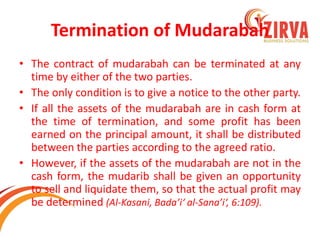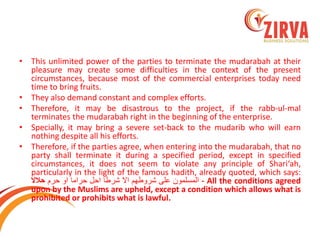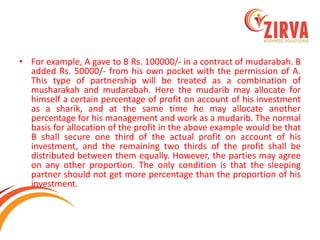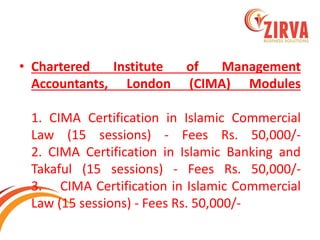Mudarabah is a partnership model in Islamic finance where one partner (rabb-ul-mal) provides capital while the other (mudarib) manages the investment, with specific differences from musharakah partnerships highlighted. The document also details the rules regarding profit distribution, responsibilities, and terminations of mudarabah contracts, emphasizing the conditions under which partners operate and share profits. Additionally, various Islamic finance courses offered by the Zirva Institute are listed, along with their fees and contact information.




























